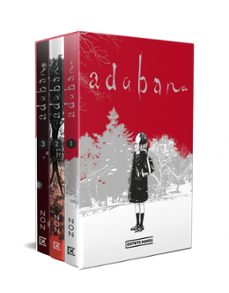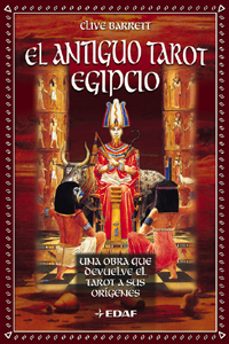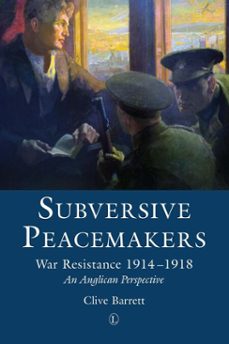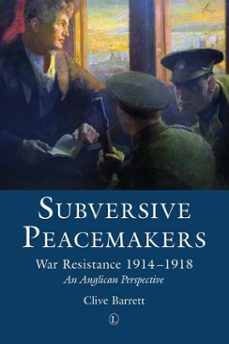Imprescindibles
Más vendidos Libros más leídos eBooks más leídos Todos los libros Todos los libros Autores destacados Series y sagas
Recomendados Libros recomendados Autores destacados Libros que inspiran Vidas con historia LGTBIQ+ English books
Ficción
Literatura Contemporánea Estudios literarios Clásicos Cuentos Poesía Teatro Libros de bolsillo Sagas literarias
Géneros literarios Novela romántica y erótica Novela negra Novela histórica Narrativa fantástica Novela de ciencia ficción Novela de terror Narrativa de humor Narrativa de viajes
No Ficción
Ciencias y tecnología Biología Ciencias Ciencias naturales Divulgación científica Informática Ingeniería Matemáticas Medicina Salud y dietas Formación Idiomas Estilo de vida Libros de Cocina Guías de viaje Narrativa de viajes Deportes Libros de Juegos Manualidades
Humanidades Autoayuda y espiritualidad Ciencias humanas Derecho Economía y Empresa Psicología y Pedagogía Filosofía Sociología Filología Biblioteconomía Estudios filológicos Estudios lingüísticos Estudios literarios Historia y crítica de la Literatura
Infantil
Juvenil
#Jóvenes lectores Narrativa juvenil Clásicos adaptados Libros Wattpad Libros Booktok Libros de influencers Libros de Youtubers Libros Spicy Juveniles Libros LGTBIQ+ Temas sociales Libros ciencia ficción Libros de acción y aventura Cómic y Manga Juvenil Cómic Juvenil Manga Shonen Manga Shojo Autores destacados Jennifer L. Armentrout Eloy Moreno Nerea Llanes Hannah Nicole Maehrer
Libros de fantasía Cozy Fantasy Dark academia Hadas y Fae Romantasy Royal Fantasy Urban Fantasy Vampiros y hombres lobo Otros Misterio y terror Cozy mistery Policiaca Spooky Terror Thriller y suspense Otros
Libros románticos y de amor Dark Romance Clean Romance Cowboy Romance Mafia y amor Romance dramatico Romance dramatico Romcom Sport Romance Otros Clichés Enemies to Lovers Friends to Lovers Hermanastros Slow Burn Fake Dating Triángulo amoroso
Cómic y Manga
Novela gráfica Novela gráfica americana Novela gráfica europea Novela gráfica de otros países Personajes, series y sagas Series y sagas Star Wars Superhéroes Cómics DC Cómics Marvel Cómics otros superhéroes Cómics Valiant
eBooks
Literatura Contemporánea Narrativa fantástica Novela de ciencia ficción Novela de terror Novela histórica Novela negra Novela romántica y erótica Juvenil Más de 13 años Más de 15 años Infantil eBooks infantiles
Humanidades Autoayuda y espiritualidad Ciencias humanas Economía y Empresa Psicología y Pedagogía Filosofía Historia Historia de España Historia Universal Arte Cine Música Historia del arte
Ciencia y tecnología Ciencias naturales Divulgación científica Medicina Salud y dietas Filología Estudios lingüísticos Estudios literarios Historia y crítica de la Literatura Estilo de vida Cocina Guías de viaje Ocio y deportes
CLIVE BARRETT
Recibe novedades de CLIVE BARRETT directamente en tu email
Filtros
Del 1 al 4 de 4
EDAF 9788441413665
Dentro de la tradición del Tarot, es comunmente aceptado su origen egipcio. Es indudable que el simbolismo egipcio ha inspirado numerosos diseños de Tarot, y las barajas actuales emplean imágenes convencionales cuyas raices son sin discusion egipcias, pero muy pocas muestran en su totalidad tanto los dioses egipcios como sus mitos y religion. Clive Barrett, devuelve el Tarot a su tierra de origen, y lo hace en esta bella obra compuesta de libro y baraja de 78 cartas, que ofrece al lector un magnifico y completo texto donde muestra las vinculaciones entre el simbolismo del Tarot y los mas importantes mitos egipcios, asi como su utilizacion practica , e informacion basica sobre los personajes y escenas que aparecen en la baraja. Hay que añadir el atractivo diseño de la baraja que incluye los mas importantes dioses del panteon egipcio, asi como el simbolismo propio de esta cultura.
Ver más
Tapa blanda
The Lutterworth Press 9780718843113
The outbreak of the First World War saw an upsurge of patriotism. The Church generally saw the war as justified, and many clergy encouraged the men in their congregations to join the army. There was, however, already a strong strand of anti-war sentiment, opposed to the dominant theology of the Establishment. This was partly based on traditional Christian pacifism, but included other religious, social and political influences. Campaigners and conscientious objectors voiced a growing concern about the huge human cost of a conflict seemingly endlessly bogged down in the mud of the Flanders poppy fields. Subversive Peacemakers recounts the stories of a strong and increasingly organised opposition to war, from peace groups to poets, from preachers to politicians, from women to working men, all of whom struggled to secure peace in a militarised and fragmenting society. Clive Barrett demonstrates that the Church of England provided an unlikely setting for much of this war resistance. Barrett masterfully narrates the story of the peace movement, bringing together stories of war-resistance until now lost, disregarded or undervalued. The people involved, as well as the dramatic events of the conflict themselves, are seen in a new light.
Ver más
eBook
The Lutterworth Press 9780718843120
The outbreak of the First World War saw an upsurge of patriotism. The Church generally saw the war as justified, and many clergy encouraged the men in their congregations to join the army. There was, however, already a strong strand of anti-war sentiment, opposed to the dominant theology of the Establishment. This was partly based on traditional Christian pacifism, but included other religious, social and political influences. Campaigners and conscientious objectors voiced a growing concern about the huge human cost of a conflict seemingly endlessly bogged down in the mud of the Flanders poppy fields. Subversive Peacemakers recounts the stories of a strong and increasingly organised opposition to war, from peace groups to poets, from preachers to politicians, from women to working men, all of whom struggled to secure peace in a militarised and fragmenting society. Clive Barrett demonstrates that the Church of England provided an unlikely setting for much of this war resistance. Barrett masterfully narrates the story of the peace movement, bringing together stories of war-resistance until now lost, disregarded or undervalued. The people involved, as well as the dramatic events of the conflict themselves, are seen in a new light.
Ver más
eBook
Del 1 al 4 de 4




























